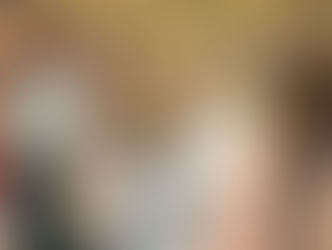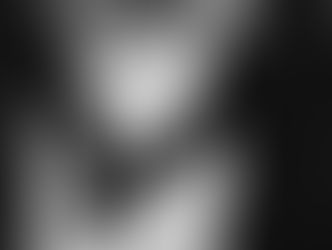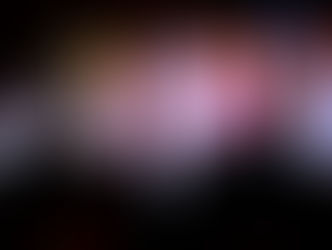In Conversation with Ólafur Arnalds on When We Are Born
- Dong Liu
- Oct 20, 2021
- 6 min read
Updated: May 13, 2022

Image Credit: Anna Maggy
Ólafur Arnalds, Icelandic composer, multi-instrumentalist, and producer, premiered his short film When We Are Born in the UK on the 9th of October at Rough Trade East. This 25-minute piece, directed by the French filmmaker, Vincent Moon, was filmed in Iceland during the summer of 2020. Narrated by the songs from his most recent album, some kind of peace, it tells a personal story of Ólafur’s life. While his previous works have clearly revealed an attraction to cinematic elements, this is the first one to contain a complete, developed storyline.
The message of the film might be different for every audience member at the premiere that evening. Personally, it tells a story of embarking on a journey from home. Led by Ólafur’s music, the film’s protagonist wanders from one place to another with seamless transitions. The long takes create a sense of continuity between the changing scenes.
Dances, rituals, hands; When We Are Born is full of patterns and motifs. ‘We were doing this in a time where we were told not to touch each other. We were being told to avoid human connections,’ reflected Ólafur. ‘By coincidence, we were making a film about human touch and human connections. We didn't really realise—until a few months later—how much we needed it and how important it was to us all.’ In a time of unpredictability, Ólafur’s experimentation with this new form of art echoed the presence of transformation in a multitude of dimensions.
The story told by When We Are Born feels like a retrospective one, with emotions of warmth and melancholy running through the path of rediscovery. The chaos of birth and rebirth is assuaged by the tranquil cinematography, retaining the film’s beautiful aesthetics whilst constraining some energies that would have had a bursting potential. Undeniable though, is Ólafur’s artistry in adapting the music to be played live. The film is certainly a thoughtful visual presentation of his transformative album.
Before the screening, we sat down with Ólafur to talk about his thought process behind this unique production.
When you were writing the album, was the film already on your mind?
Yes, it was. When I was writing the album, halfway through, this film started to form in my mind. From that point on, they developed together. There was no album without the film and there was no film without the album.
Was it the music or the images that came to you first?
When I was writing the album, I had the concept of the film, but it was more methodological. I have an idea of 'how' but not of 'what.' I wanted to do a live film, where we play the music inside the film and there is a story that weaves through it. That was all I knew. Only after I finished writing the album, the story became clearer to me. That is when Vincent Moon and I started writing the actual story. It was based on the songs that we have selected to include. So I would say that the music definitely came first in the storyline.
Talking about the concept of the film, where did the inspiration come from?
I don't know, really. I always try to create something new. When I choose to do a project like this, I don't want to do a film in a standard way. I want to create a medium of music that is new to me, and hopefully to other people, as well. It's difficult to say where the inspiration came from. For example, there is this Icelandic film called Women at War. It's a great film. One of the things that they do is play the music on set. The female protagonist is protesting against the destruction of nature. She’s going around the country and sabotaging dams and power plants. There is always a band that follows her. There is a drummer, a trombonist... and they are always behind her playing the music of the film. They are never acknowledged but they are always there! That film is a huge influence. It’s so fascinating to see the music playing a character in the film.
All of the music in your film is performed live, as well?
Yes, the music is the protagonist, really. The music is telling the story.
Why have you titled this film When We Are Born?
This is a quote by Lhasa de Sela that runs through the film and the album as the only real dialogue. It comes from a monologue performed by her. No one really knows where that monologue is from, but we used the recordings of her voice. The monologue is about the idea of being born. She was reciting a story that her father had told her: We don't know what is happening when we are born, because all we know is the womb of our mother—that is our whole life. Then, suddenly we are born. It must feel like death to us. But then we are surprised because it is the beginning. It's this symbolism that fascinates me.
We will experience this later in our lives, right? We will experience death, but we don't really know. No one knows for sure. This idea is not supposed to be spiritual or religious, but more of a thought experiment. We can apply it to anything in our lives—it can be any beginnings or anything that feels like an end.
The film was produced at a rather unique time. Did the circumstances affect the production?
Yes... we got lucky. We were shooting in Iceland where the pandemic didn't have as serious of an effect as on many other countries. Still, we did have a lot of restrictions. We shot the film during a small gap with fewer restrictions, which lasted for two weeks. People that were going to come to Iceland to film couldn't make it in the end. We had to change choreographers, and many things like that happened. Even releasing the film was difficult. When the film was ready, no theatre was open and no film festivals were happening.
Have the restrictions made the production more spontaneous in a way?
I enjoyed it, actually. I love working within limitations. I think it offers you an opportunity to be creative.
The theme of the production is ‘how we all move forward.' Could you talk a bit more about that?
It is a personal one to me. Of course, it would be interesting to project it onto the listeners, like how they might see it as their way to move forward. But in the end, the album is my personal story of moving forward. It is a process of rediscovering what we want to do, how we do it, and with what feelings we do it. It is hard to describe it in more detail because it is a personal transformation. I don't intend to say that I have the answer.
You have been making music for over 17 years. Has anything changed? Is there something that remains the same?
The heart always remains the same. No matter what, I'm doing music for the same reason, and that is doing it for the process. I remember doing my first album: you were so naive at that time; you didn't even know if anyone would like this music; you were just doing it for fun and not thinking about it. That hasn't changed. When I'm making music, I don't care what is going to happen to it that much. I'm really glad that it has stayed the same.
But of course, there're huge changes in my life and how everything works. I wrote my first album and recorded it at my parents' house—in the living room and partly in the garage. That's really different from my life right now—doing this as a full-time professional, if I can call it that.
You have played in metal bands and later turned to producing more neo-classical music. What is your understanding of these different genres, such as classical music, electronica, and etc.?
For me, they have always been different sides of the same coin. I don't think that they are all that different and we just put these labels on these things. If you really want to break it down, it can be some pseudo-philosophical bullshit. There is no real difference between these things. They are sound waves, frequencies, and everything else we project onto them. When I started doing neo-classical music from playing in a punk band, surely they sound different but they didn't make me feel different. In the end, you are creating different avenues for exploring the sound.
There might be different emotions that are appropriate: in punk, there's a lot of anger; in neo-classical, there's more contemplation. We need all of these things. We need an outlet for our anger; we need an outlet for the feeling of wanting to dance, and we need an outlet for contemplation or melancholy. But the core of these things is the same.

Click here to watch When We Are Born.
edited by Josh Aberman, Music Editor
Image Credit: Anna Maggy
























Comments